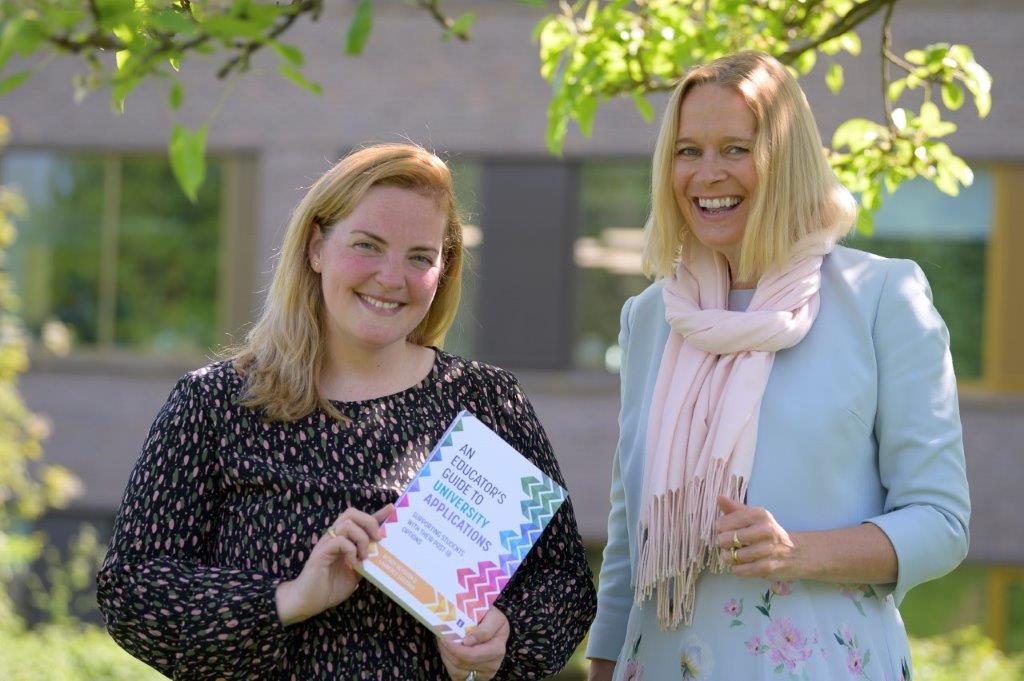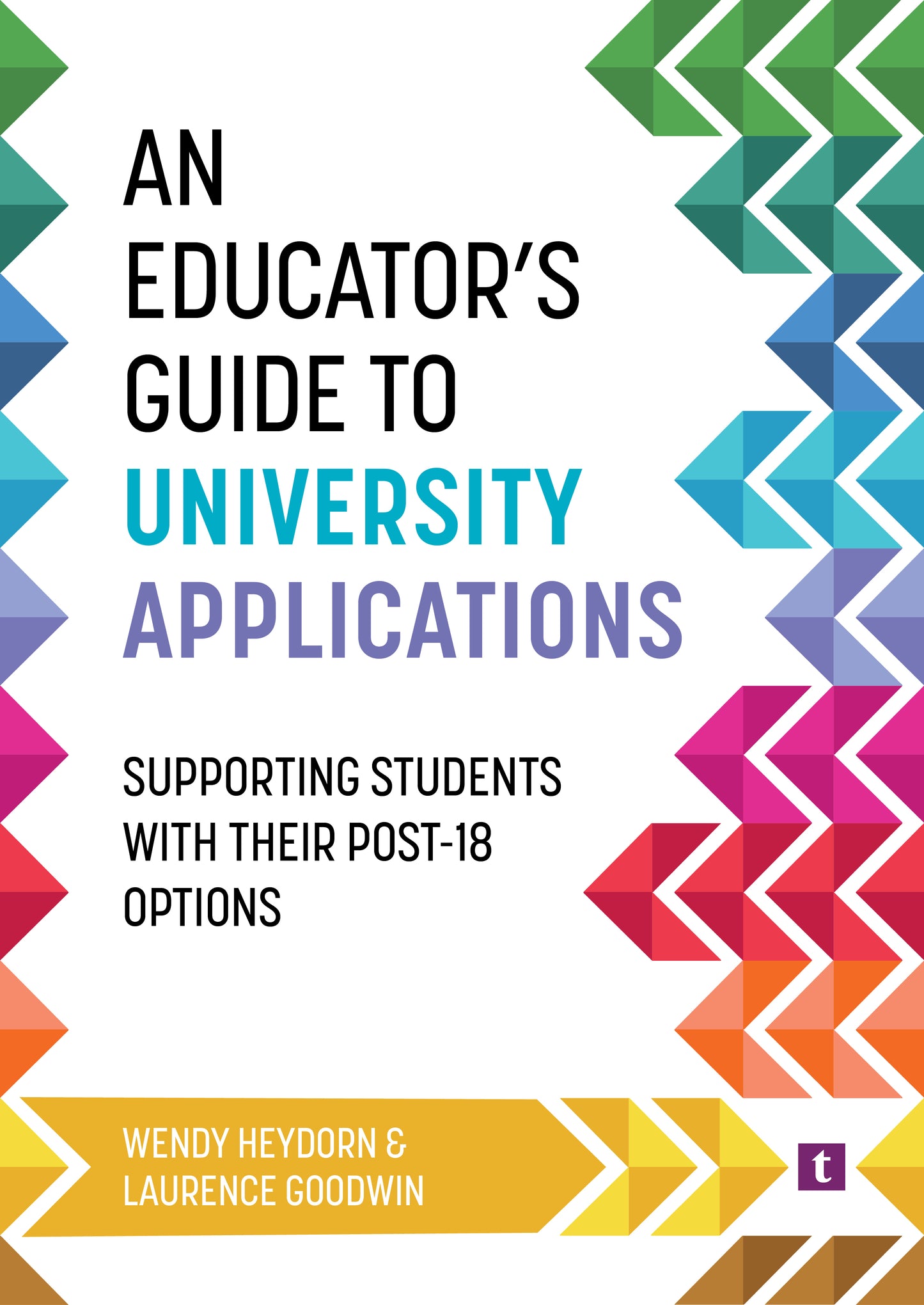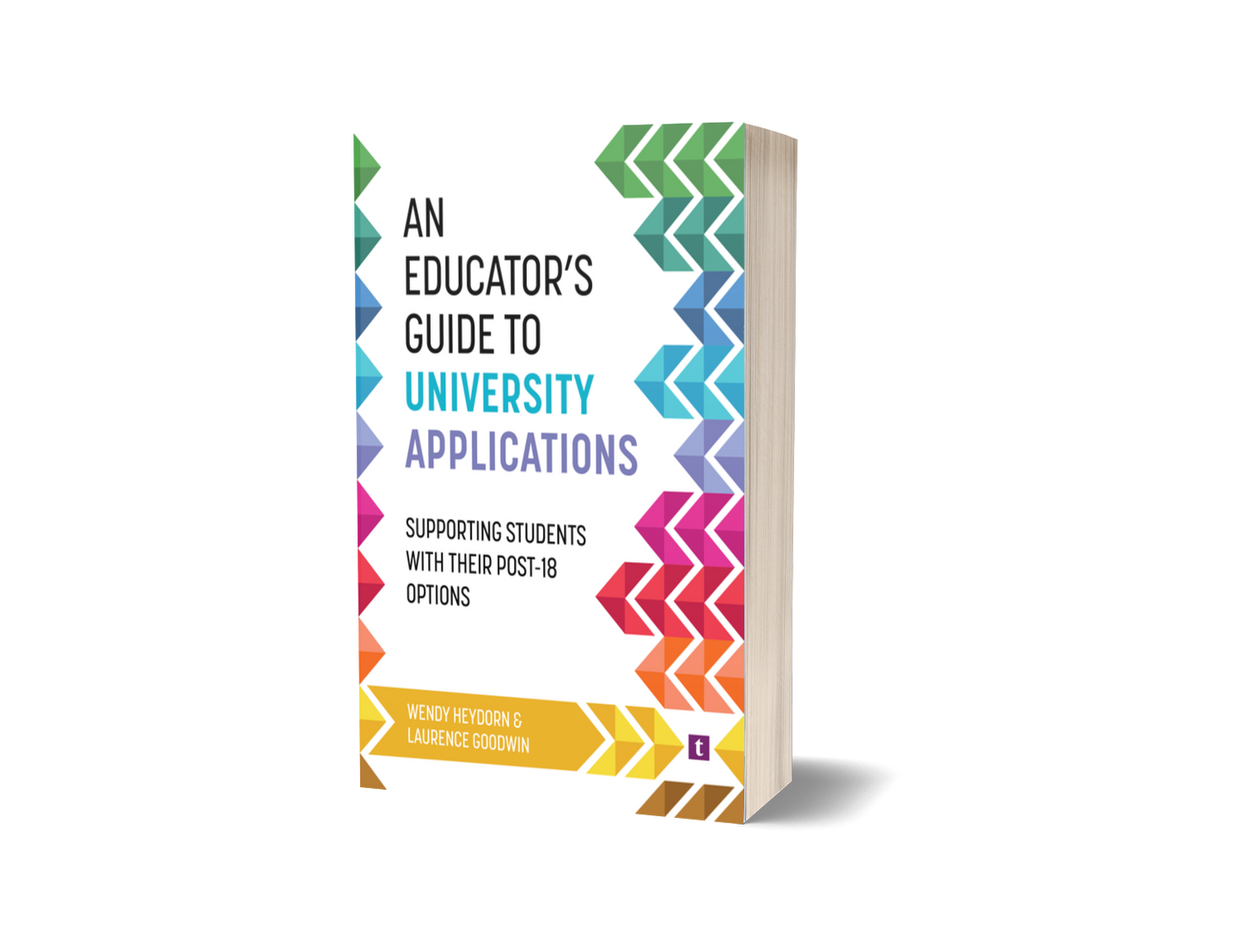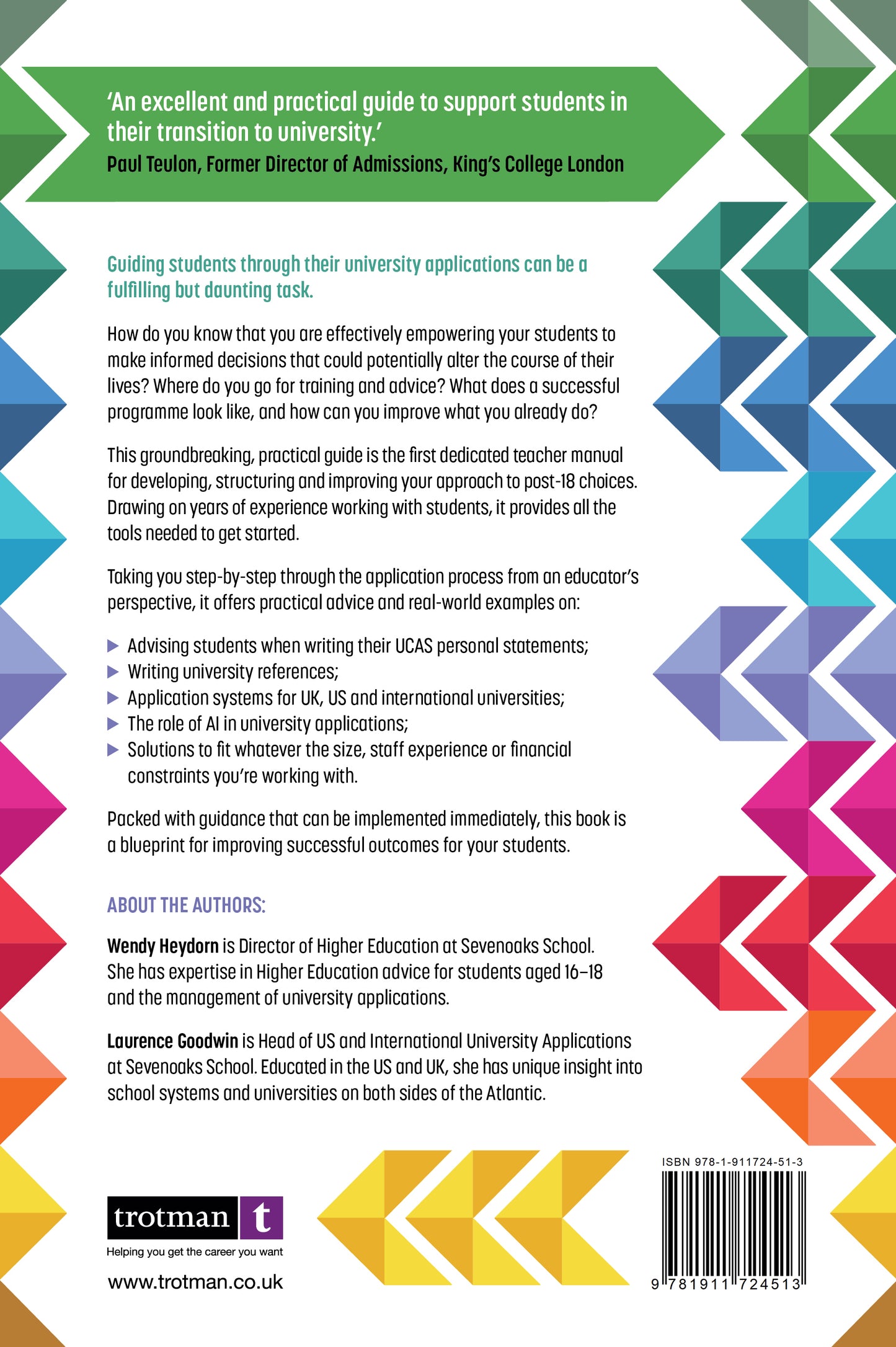
An Educator’s Guide to University Applications: Easing pressure, supporting staff and securing student futures
By Wendy Heydorn and Laurence Goodwin
Why supporting university applications matters more than ever
Going to university is part of a student's intellectual journey and personal growth. Given the opportunities available throughout the world, they may want to study at an institution beyond their home country. Whether it’s an application to a university in Canada, Europe or the US, students are increasingly aware of global opportunities. The support you provide for them is vital, and we hope that the information in An Educator’s Guide to University Applications will help you to create a thriving and exciting strategy to support your students with their university applications.
If you already help students with their applications, you may want to review how you use your time and resources to benefit all your students – perhaps you want to simplify what you do, or even expand your programme of support, or respond to the changing needs and expectations of the students in your care. We all know there’s a lot of pressure on staff to get this right. This is the first comprehensive ‘how-to’ guide for educators that spans a global perspective on university applications.
Experience has taught us that when advising students, there’s a balance to be struck between support and challenge. In our book, you’ll learn how to create, develop and strengthen your programme of support for the benefit of your students, colleagues and wider school community.
The hidden load: why university applications can overwhelm educators
After a busy day of teaching, taking home references to write, or reading students’ personal statements – with a UCAS or US university deadline approaching – can seem like an endless and sometimes thankless task. Imagine that you then check your emails and there’s a bunch of enquiries – maybe a student asking you about an application to a Canadian university or a degree apprenticeship or a question from a colleague about the latest university admissions tests – and you can quickly feel overwhelmed before you have even begun your marking.
Or perhaps you are a member of the support staff at your school facing your own challenges. You might have many students making university applications and not enough time to help them, or an overwhelming amount of work, balancing teaching with managing careers guidance across many year groups. Perhaps you are responsible for university applications and implementing the revised Gatsby Benchmarks.
Our experience when liaising with staff in various schools is that educators who help with university applications have very good intentions but often limited time and may not always have the support or empathy of their senior leaders or colleagues. Too often educators work alone or with limited resources and find it challenging to negotiate the time and support that they need to help the students in their care. We’ve been there with a busy schedule and multiple school commitments. Our intention in writing this book is to support colleagues in their efforts to balance their professional commitments and workload with their duty of care to the students they are responsible for. That's why we decided to share how we have dealt with those challenges and collaborated with colleagues to help support a large all-IB Sixth Form cohort of 500+ students who typically apply to universities all over the world – though we hope many of the principles we operate under will work equally well in other settings.
We thought it would be useful for our colleagues in other settings if we shared some of the strategies that have worked for us: how you can collaborate with colleagues or spread the tasks that need to be done throughout the year, so you don't feel alone or overwhelmed by the task of helping young people.
Who this guide is for: newcomers, veterans and everyone in-between
If you are an educator in a school or college setting this book is for you; it will help you reflect on the expectations and needs of multiple stakeholders: governors, senior leaders, teachers, staff, parents and students. Anyone in a UK school or Sixth Form College or international school who supports applicants to UK and US universities will benefit from reading this book, whether they are a new or experienced adviser. We hope they will enjoy reading about our insights based on over two decades of shared experience.
Why educators need this now: navigating pressure, policy and student dreams
Gatsby Benchmark 7 requires schools to ensure that students are “aware of the full range of learning options available to them, including academic, vocational, and higher education.” There’s a lot of pressure on teachers and advisers, because most students only apply to university once. That means if we make a mistake, it could have a big impact on their futures – especially for newer staff who are still finding their feet. What we say and do to inspire and motivate young people can make a positive difference. Any teacher advising young people with their 18+ options beyond school feels responsible for helping them at a key moment in their lives. There are important questions for schools and colleges to consider:
● What are the statutory requirements? What is the scope of the school's responsibility? What is your aim, as an educator, and what is the aim of your institution?
● Who is responsible? How are time and resources allocated to staff?
● How can you help students make strong applications and maximise students’ chances of success?
● What issues can arise for various stakeholders: school staff, teachers, senior leaders, governors?
● In a fast-changing landscape, how do you help students balance aspiration with realism, and manage the expectations of parents?
What makes An Educator’s Guide to University Applications a game changer?
These are some of the key benefits of our book:
1. Training on the individual elements of UK, US and international applications exists but we show how teachers can apply this in their school or college context. This book fills in the gaps; since it has a school management focus, it addresses things that UCAS seminars, US-related training events and conferences do not currently cover, all in one place.
2. We offer a comprehensive guide full of practical advice for those new to this work or for experienced teachers looking for ways to improve their own processes – a one-stop shop for helping educators understand how to lead and manage the responsibility of university applications through multiple systems (UK, US and international).
Solving real problems efficiently
We offer a practical guide to support staff members in British and international schools worldwide, giving teachers a clear and easy-to-use manual for running university applications for any size cohort in any school or college context. It is our aim that a teacher with the responsibility of managing the application process will be able to use our book to ‘hit the ground running’, rather than having to learn how to create and manage the process through trial and error.
There are many excellent resources aimed at supporting students with university applications. However, our book is written specifically for staff in schools and colleges. Very few (if any) training sessions or seminars offered to teachers address the differences inherent in different countries’ application systems or provide a structure for the management of an entire cohort’s applications across multiple systems. Indeed, many resources are targeted at either students or parents, or one country’s application system, whereas our book is holistic, supporting students to consider all their post-18+ options. Above all, our book is practical, accessible and current, and linked to the revised Gatsby Benchmarks.
Supporting students when it matters most
Students apply to universities and the universities make a decision: resulting in either the offer of a place or a rejection. When students are disappointed, and face rejection (maybe for the first time in their life), we know how challenging this can be for students and their parents or carers. We consider these difficult scenarios and how you might follow up and respond to them. Having a robust and carefully considered plan of support can help to mitigate some of the risk of students making choices that lead to disappointment, but it can also help you communicate the difficult message that sometimes universities have too few places for too many excellent candidates. If a student has engaged with your support and done everything they possibly could but has still been rejected, then at least they (and you) know there wasn’t anything more that they could have done.
When you are reliant on colleagues to help students get the grades they need to enter university or write a university reference for them, we understand how important it is to collaborate and communicate positively. We consider how you might develop your collaboration and suggest ways that you can get relevant staff involved and enlist the empathy and support of your colleagues and senior leaders. If you are a busy educator helping students with any university application, we want to help make the task of advising them an even more joyful and inspiring task – and a responsibility that is shared, celebrated and valued by a whole school or college community. Whatever your educational setting, we hope that our book contains useful and practical insights that will benefit you and your students.
We would be delighted if you have time to leave a short review, and if you have any questions or would like to discuss the book, please come and find us on LinkedIn: https://www.linkedin.com/in/wendy-heydorn-9047326a/ https://www.linkedin.com/in/laurence-goodwin-22894256/
We look forward to hearing from you!




